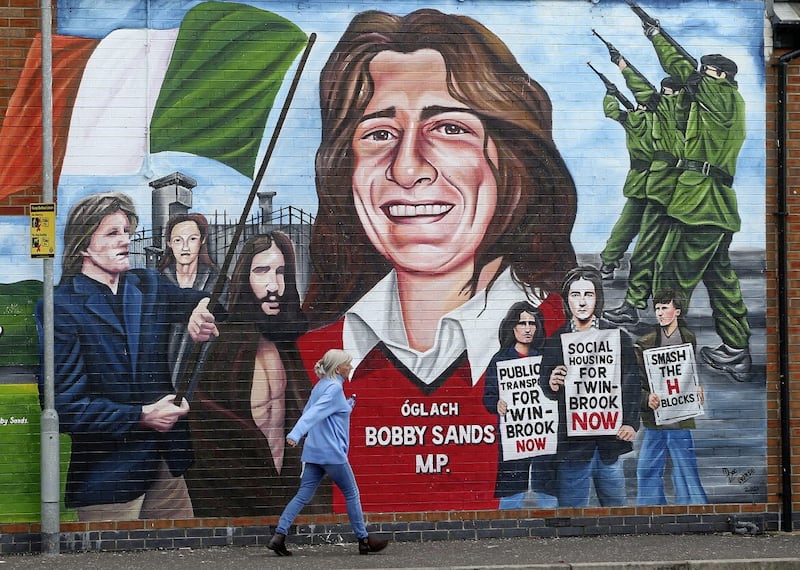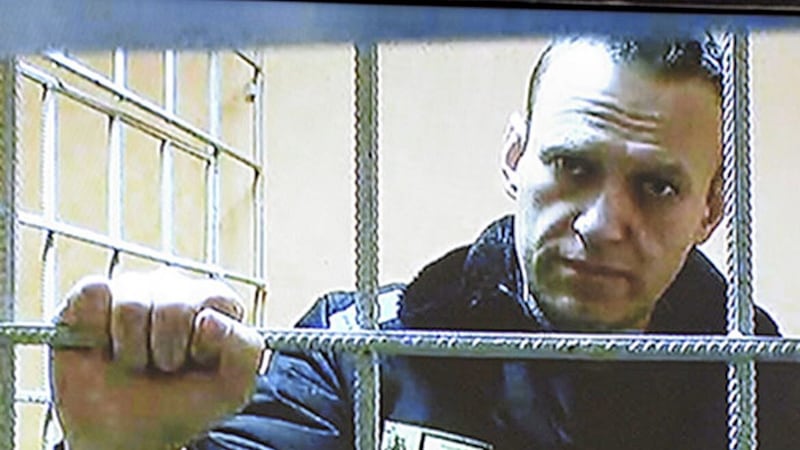WE have a lot of experience of political prisoners on this beloved but troubled island, some of whom have played a critical part in its history. When you are locked-up by a régime you are trying to depose, you can sometimes have a greater role in its downfall than by remaining on the street as a political campaigner or waiting behind a hedge with a rifle in your hand.
A classic example of this was of course Bobby Sands, leader of the 1981 Long Kesh hunger-strike and winner of the game-changing by-election for the Westminster seat in Fermanagh and South Tyrone left vacant by the death of Frank Maguire.
The Belfast republican was following in the footsteps of Terence MacSwiney, Sinn Féin Lord Mayor of Cork, whose death on October 25 1920, after 74 days on hunger strike in Brixton Prison, brought the campaign for Irish independence to much greater international attention.
However you don't always have to go on hunger strike to make an impact. In January 1989, Václav Havel was given a sentence of nine months – one of his many imprisonments – and at the end of the same year, on December 29, he was elected President of Czechoslovakia (later divided into the Czech Republic and Slovakia).
I have discovered a report from March 2007, four years after he ceased to be Czech President, that Havel agreed to go on a symbolic one-day hunger strike, with other leading figures, in support of a Kurdish-born doctor and human rights activist, Dr Yekta Uzunoglu, who had been on trial in Czech courts for 12 years and went on an 11-day hunger strike himself at the time.
In May 2001 when he was still in office, President Havel gave me an interview at Prague Castle where he urged the Irish people to vote Yes in the following month's constitutional referendum on the Nice Treaty to facilitate enlargement of the European Union into Central and Eastern Europe, including former members of the Communist bloc, which had to be ratified by all existing member states.
The amiable and good-humoured Havel played down fears among opponents of the Treaty that it would result in Ireland becoming part of a militarised European state and having to fight in somebody else's war. "I do not see much of a rational element in such thought," was how the interpreter translated his response.
Read more:Deaglán de Bréadún: What would a Sinn Féin-Fianna Fáil coalition look like?
Read more:Deaglán de Bréadún: Sinéad O'Connor, Sinn Féin and the courage of conviction
Read more:Deaglán de Bréadún: RTÉ may never be quite the same again
This was of course after the collapse of the Soviet Union and he went on to say in the interview, published in The Irish Times on May 28 2001, that "the world of today is different: we no longer have two major blocs opposing each other, with neutral countries watching the ball fly between the two sides".
When the Irish referendum took place 10 days later on June 7, a majority of voters rejected the constitutional amendment which would have accepted the Nice Treaty. The wording of the amendment was later changed to exclude participation in common defence and the new version was approved in a second referendum on October 19 2002.
Havel's dismissal of concerns that the EU would stand aloof from military matters is somewhat less reassuring since the outbreak of the war in Ukraine. I note that, whilst condemning the Russian invasion, Roger Cole of the Dublin-based Peace and Neutrality Alliance (PANA) says there is "a militaristic lobby in Brussels which sees a chance to promote an armed Euro-Federation dominated by a Franco-German hegemony".
It was reported recently that US President Joe Biden has been pushing for the President of the European Commission, Ursula von der Leyen, to be appointed as secretary-general of the North Atlantic Treaty Organisation (Nato) in succession to Jens Stoltenberg. A spokesman for her said she was "not available for the job", but Biden's suggestion was no doubt inspired by her vocal stance in relation to the Ukraine conflict.

In February 2022, she announced: "For the first time ever, the European Union will finance the purchase and delivery of weapons and other equipment to a country that is under attack." At the time, the EU announced a fund of €450 million (equivalent to almost £388m at time of writing) to provide weapons and other material to the Ukrainian Army. Meanwhile the German government decided to provide 1,000 anti-tank weapons and 500 Stinger anti-aircraft defence systems to Ukraine.
Back in 1984 Havel's Polish counterpart, Lech Walesa, threatened along with others to go on hunger strike in support of Jacek Kuron, a dissident who was fasting in jail after the Communist régime at the time had locked him up without trial. As far I can make out, the threat was never carried out and Kuron was released the same year, later becoming a government minister.
I had the privilege of interviewing the Nobel Peace Prizewinner during a visit he made to Ireland in September 2009. We talked in the Constitution Room of Dublin's Shelbourne Hotel where the founding document of the Irish Free State was drafted by Michael Collins and others in 1922.
Walesa confessed he knew little about this country, "apart from the fact that Ireland also has had to put up with a tough, difficult neighbour: the neighbour has taken advantage of Ireland and Ireland has paid really a very high price for her freedom". He continued later: "So in a way we have had a similar history with the difference that you have had one neighbour and we have had two [Germany and Russia]".
In March 2022, Human Rights Watch reported that the Russian authorities had "arbitrarily arrested thousands of peaceful protesters at anti-war rallies" across the country. The protests against the Ukraine invasion were encouraged by imprisoned dissident Alexei Navalny who wrote on his blog: "It was Putin who wanted to bomb peaceful cities, kill children and destroy lives. The Russians were not asked if they wanted war. In Russia, which we love and are proud of, millions of people are against this madness."
Navalny went on a 24-day hunger strike on March 31 2021 which he said left him looking like a "skeleton, swaying, walking in its cell". The 47-year-old lawyer has been in a remote penal colony since 2021 and his nine-year prison term was recently extended to 19 years after he was found guilty of founding and funding an extremist organisation: charges he denies. He wrote on social media: "The figure doesn't mean anything. I fully understand that, like many political prisoners, my sentence is for life. Life is measured either by my lifespan or that of the régime."
One is inevitably reminded of Terence MacSwiney's dictum: "It is not those who can inflict the most but those who can endure the most who will conquer."







